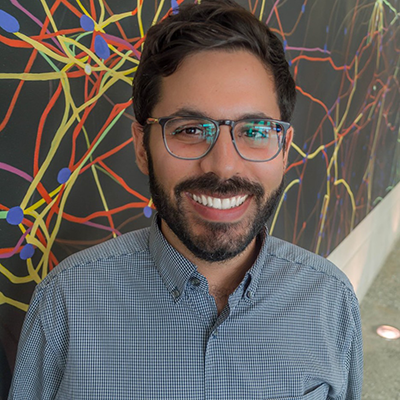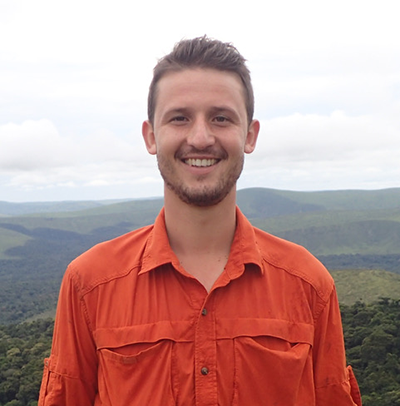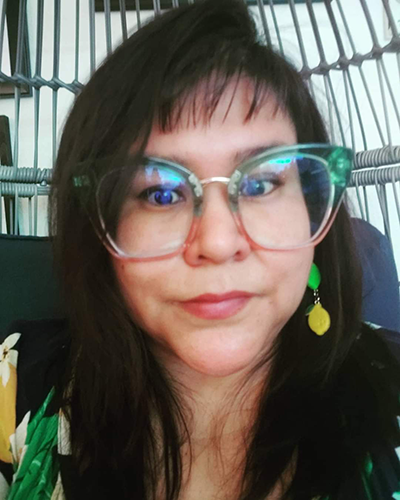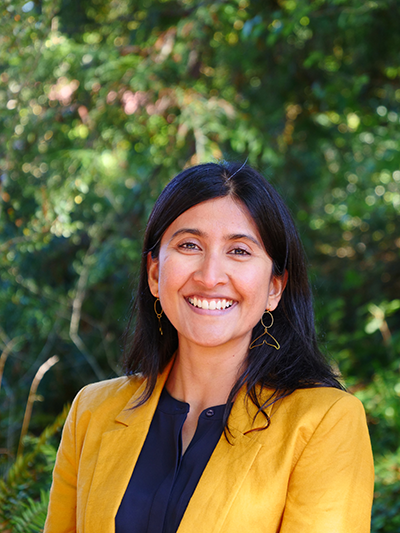Largest Cohort in UC San Diego Program’s History Receives Hellman Fellowships
Crucial funding for 26 junior faculty members awarded in 2025-26 year
Story by:
Published Date
Article Content
Over 30 years ago, husband and wife Warren and Chris Hellman launched the Society of Hellman Fellows Program at UC Berkeley and UC San Diego. The program awarded 10 Hellman Fellowships in 1995 at UC San Diego. This spring, 26 UC San Diego junior faculty members were selected for the 2025-2026 Hellman Fellowship by a selection committee that included previous awardees. This year’s cohort was also awarded a historic funding total of approximately $1.24 million. Since the program’s launch, the Hellman family has given over $19 million to support more than 460 UC San Diego junior faculty in their work and advancement toward tenure.
Backed by a permanent endowment, this unique fellowship continues to support assistant professors who have been in their roles for at least two years and have not yet been granted tenure. Fellows receive flexible, one-time funding they can use to advance their research, explore new ideas, or take their work in bold new directions. The Society of Hellman Fellows provides vital support to early-career faculty at a key point in their academic journey, before they receive the major external funding that often comes with tenure.
The Hellman Fellows represent diverse fields of study across the UC San Diego community, from literature to bioengineering and visual arts. The multidisciplinary nature of the awards is also complemented by a sense of collaboration and comradery among awardees.
“The awardees not only describe the projects they are pursuing but also engage in meaningful conversations about future collaborations and cultivating a supportive academic community with a shared purpose,” said Executive Vice Chancellor Elizabeth H. Simmons. “The Hellman Fellowship fills a rare and crucial gap in academic funding when it matters most by supporting rising junior faculty from a broad range of academic fields.

Alex Chaim
“It is rare to have a combination of STEM and non-STEM fellows, and I am looking forward to interacting more with the other Hellman Fellows and the society’s network,” said Alex Chaim, assistant professor in the Department of Cell and Developmental Biology.
Chaim’s project “Decoding the RNA Damage Landscape in Glioblastoma Chemo and Radiotherapy” will research how RNA damage can have direct implications on how patients respond to treatment for glioblastoma, the most common primary malignant brain tumor in adults, which currently has no cure.
“The way we treat glioblastoma has fundamentally been the same for the last two decades and we hope that our work is a step forward in further understanding how to treat this devastating disease. The unrestricted nature of these funds means that we have room to explore and take risks in our work,” Chaim said.

Noah Rose
Noah Rose, an assistant professor in the Department of Ecology, Behavior and Evolution, is investigating “The Rapid Evolution of Mosquito Preference for Humans in Growing African Cities.” His work was inspired by recent observations made with colleagues in Burkina Faso and Ghana that Aedes aegypti mosquitoes in West African cities show genomic signatures of adapting to urban habitats in rapidly growing cities.
Rose says this is a rare opportunity to study a process as it plays out in real time. He is also excited about the opportunity to make a real impact on global health, as mosquito-borne diseases have a profound global impact, causing millions of illnesses and deaths annually.
“The Hellman Fellowship is providing crucial support for studying an important process in exactly the time and place where it is most needed, and when doing this kind of complex international work is getting harder and harder, but simultaneously more crucial. The Hellman Fellowship is the primary reason we will be able to carry out this work at the precise tipping point when mosquito-borne disease transmission dynamics may be shifting,” said Rose.
“The Hellman Fellowship is providing crucial support... where it is most needed, and when doing this kind of complex international work is getting harder and harder, but simultaneously more crucial."

Casandra Lopez
Casandra Lopez, assistant professor of Literature, is working on a book titled, “We Are Singing, Always/ Che’eenaxre Horuura’.” The book, comprised of visual and poetic elements, uses personal and historical archives to explore Indigenous diaspora, violence, grief, and joy.
Lopez says the project is shaped by her experiences with chronic illness, grief over the loss of family members and learning her Indigenous language, Tongva. The first language of the Los Angeles area, Tongva, is currently being revitalized.
“Like most Tongva people, I did not learn Tongva growing up. The last fluent speakers are said to have lived in the early 20th century. The Hellman Fellowship is integral in completing my second book of poetry, a book that I hope will make an important contribution to California Indian literature. I hope that my poems will inspire other heritage language learners to write and speak in their languages,” Lopez said.

Deepti Chatti
Deepti Chatti, an assistant professor in the Department of Urban Studies and Planning, core faculty in the Critical Gender Studies Program, and affiliate faculty with the South Asia Initiative at UC San Diego, is working on her book “Changing Hearths and Minds: Energy Access, Air Pollution, and Sustainable Development in India.” It analyzes the everyday energy decisions of low-income families in India with implications for climate change, public health, and gender empowerment.
Chatti shares that her work in this space is unique because much of the research in these areas has historically been from a quantitative perspective, while she is adding a much-needed qualitative lens powered by long-term ethnographic research. The book is a culmination of a decade of work that she first began as a graduate student.
“Support from the Hellman Fellowship will allow me to finish the data analysis for this project and complete my book for submission. This support is instrumental in providing me the resources to take this project to the finish line at this crucial time in my career before tenure,” Chatti said.
The 2025-2026 UC San Diego Hellman Fellows are:
- John C. Arroyo, Urban Studies and Planning
- Vineet Augustine, Neurobiology
- Dhananjay Bambah-Mukku, Psychology
- Gabriel Bámgbóṣé, Literature
- Scott Biering, Molecular Biology
- Alex Chaim, Cell and Developmental Biology
- Deepti Chatti, Urban Studies and Planning
- dean erdmann, Visual Arts
- Mariah Garnett, Visual Arts
- Haojian Jin, Halicioglu Data Science Institute
- Vira Kravets, Bioengineering
- Wan-Lu Li, Chemical and Nano Engineering
- Casandra Lopez, Literature
- Lorena Mostajo, Visual Arts
- Silpa Mukherjee, Literature
- Imani N. S. Munyaka, Computer Science and Engineering
- Vu Quang Nguyen, Molecular Biology
- Margo Odlum, SIO Department
- Roy Perez, Ethnic Studies
- Nydia Pineda de Ávila, History
- Noah Hartmann Rose, Ecology, Behavior & Evolution
- Ariana Ruiz, Literature
- Julia Megan Stauber, Chemistry & Biochemistry
- Tzer Han Tan, Physics
- Christopher Alexander Theissen, Astronomy & Astrophysics
- Yuan Yuan, Philosophy
The Hellman Fellows Program at UC San Diego will celebrate its 30th Anniversary this year with a special event in the fall.
Learn more about the Hellman Fellows Program at UC San Diego.
Share This:
You May Also Like
Stay in the Know
Keep up with all the latest from UC San Diego. Subscribe to the newsletter today.




